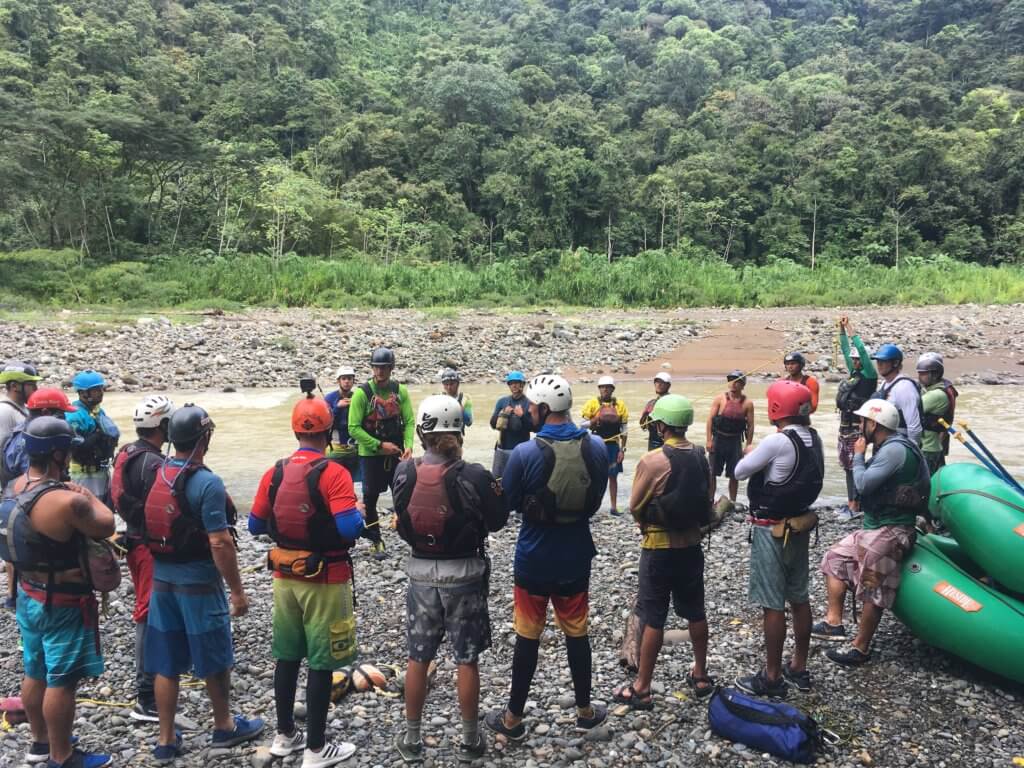
Costa Rica Swiftwater rescue training is warm! On the river the guides started with a safety talk emphasizing constant awareness of proper equipment, containing river activity with upstream and downstream safety and having an emergency plan. There is inherent risk in whitewater activities and always a chance an accident may happen. That is why we train and prepare. Communication and organization are often difficult during actual river rescues due to remote locations, lack of emergency resources and cell phone communications. They reviewed hand and whistle signals and discussed emergency plans for the class. Paul and Mike are both EMT's and several of the guides had WFR or EMT level EMS training. This led to valuable discussion concerning emergency planning for rafting operations and guides. The guides would get hands on experience in each of the LAST four phases of rescue: locate, access, stabilize and transport.
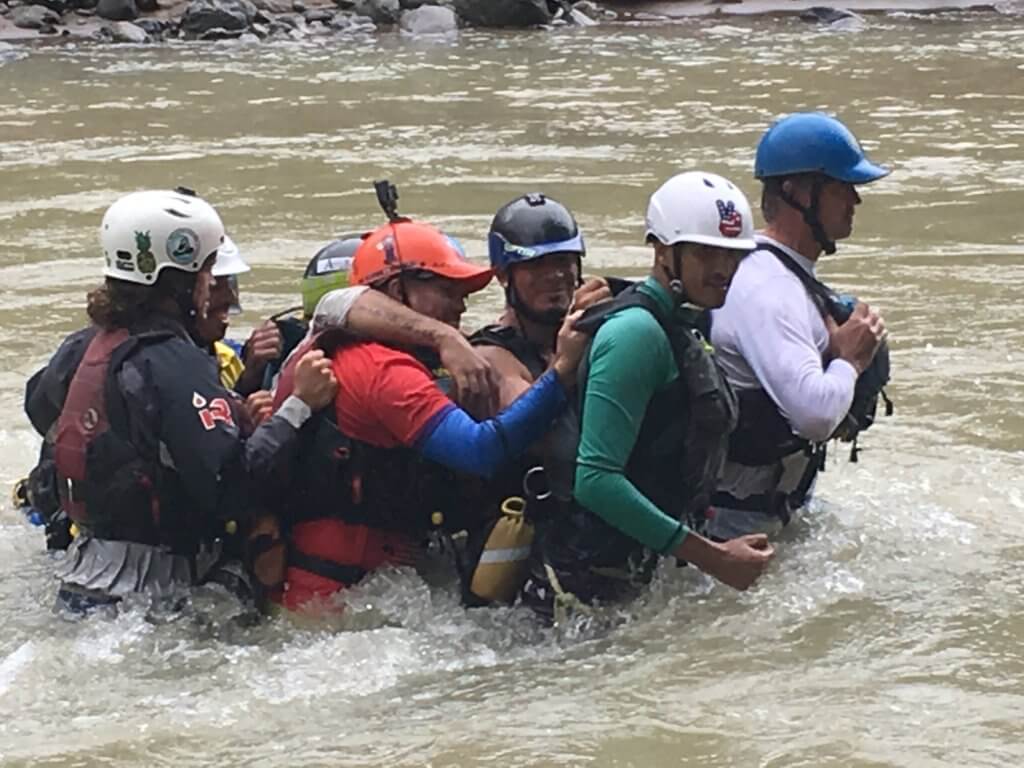
Guides demonstrated defensive and aggressive swimming, self rescue and throw bag skills. The class discussed the importance of situational awareness, being prepared and taking a moment to size up the scene during an actual rescue. It's importance to choose the lowest risk option of; hello, reach, throw, row and tow, go progression of risk in response. The warm crystal clear waters of the Rio Sevegre were the perfect place to practice and refresh rescue throws, shallow water crossings and aggressive rescue swims to access conscious and unconscious victims. After practicing the fundamentals the guides took turns being rescuers and victims for a series of progressively more challenging scenarios which are often the highlight of rescue training. Scenarios offer the real time challenge to practice not just rescue skills- but rescue scene size up, decision-making, risk management and the application of basic rescue principles.
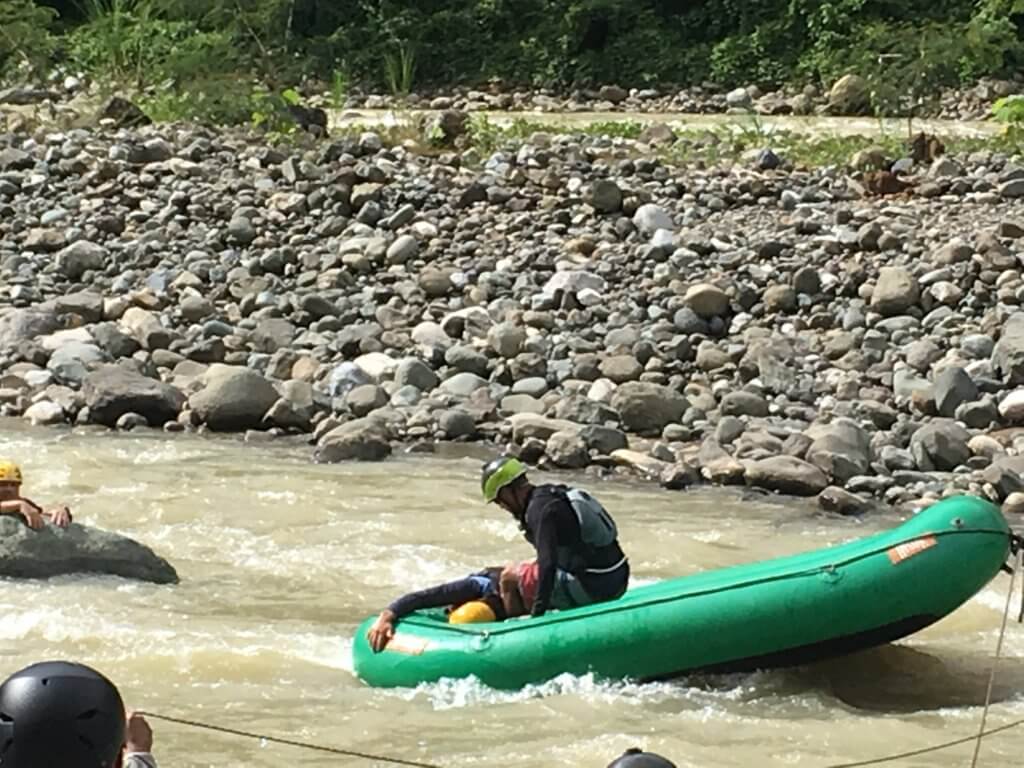 Rafting Rescue in Costa Rica Swiftwater Rescue Training[/caption]
Rafting Rescue in Costa Rica Swiftwater Rescue Training[/caption]Students emphasized upstream and downstream scene containment and the priority of rescuer safety at all times. The scenarios revealed the challenge of team organization and communication during a response. Much was learned from the perspectives and insights of rescue team members during the short debriefs instructors led after each scenario. Students discussed the Incident Command System and importance of identifying a team leader for an emergency response. The guides and instructors led discussions and demonstrations on in-flow risk management, entrapment situations, boat pins, mechanical advantage, hasty searches, and medical considerations during rescues. This set the stage for more challenging scenarios with multiple victims simulating injuries so students had the opportunity to practice first aid during their responses.
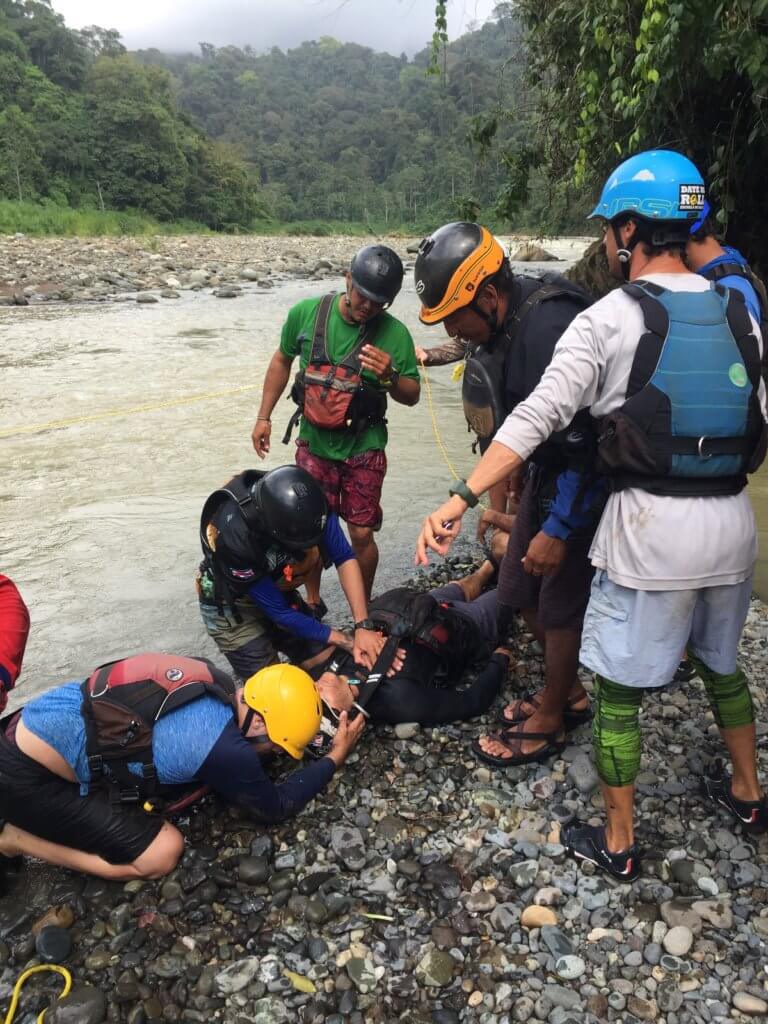
We practiced knots, anchors, z-drags and line crossings in preparation for scenarios requiring technical rescues. Students and instructors discussed details of emergency preplanning and risk management for commercial rafting operations. Pre-trip guide briefings from a lead guide can include an update on conditions, flows, hazards, pertinent customer information such as age and size, identifying lead boat and sweep boat, safety boat considerations, spacing, first aid kits, communications options and the evacuation plan in the event of an accident. The scenarios reminded us that rescue organization and communication are usually difficult in a river response. We can be better prepared by training and preplanning.
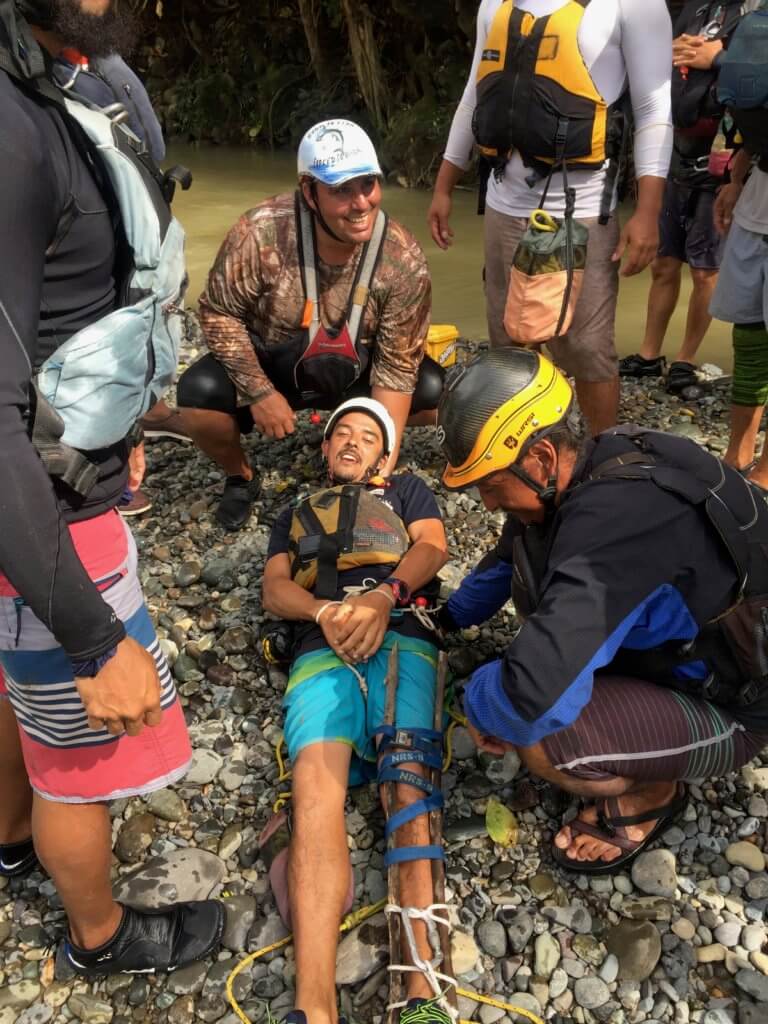
Costa Rican guides work almost year round on their rivers and as a result are very knowledgeable and skilled. We were lucky to meet and train with such a friendly, dedicated group of river professionals. The guides brought a considerable amount of training and experience to the classes which made it a much more valuable learning experience and opportunity to prepare and practice for worst case scenarios. We have learned by teaching around the world that preparing for the worst case scenario often leads to a more preventative approach to managing risk and a heightened level of awareness which helps us be safer as river professionals and responders.
A big thank you to Rafiki Safari Lodge for helping coordinate the Costa Rica Swiftwater rescue training, especially Loki, Randall, Kenneth and Allan for all of their expert local knowledge and assistance with course logistics. Thank you also to the excellent guides from Amigos del Rio, Pro Rafting, Unique Tours and H2O Adventures. Pura Vida !
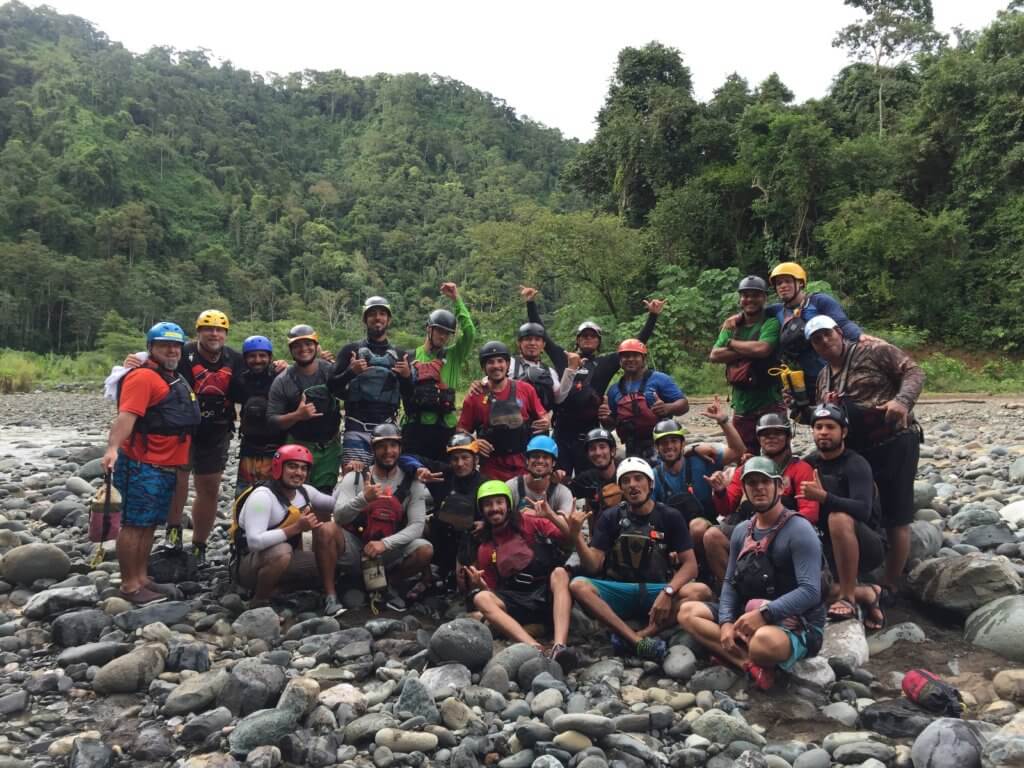
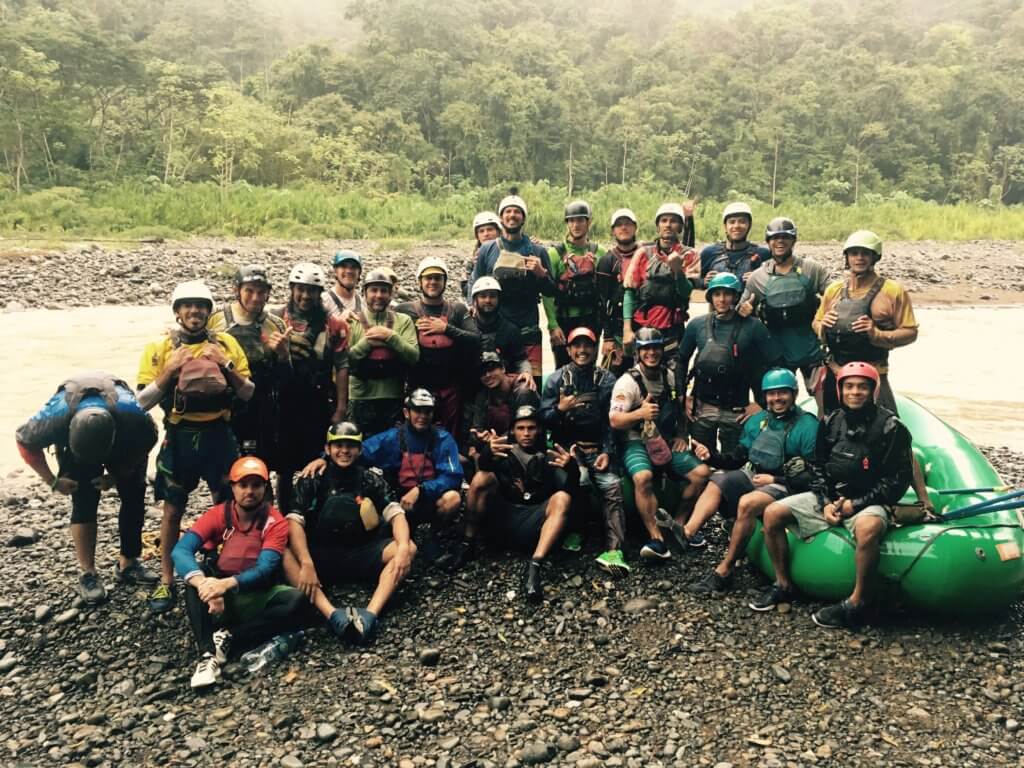
No comments:
Post a Comment